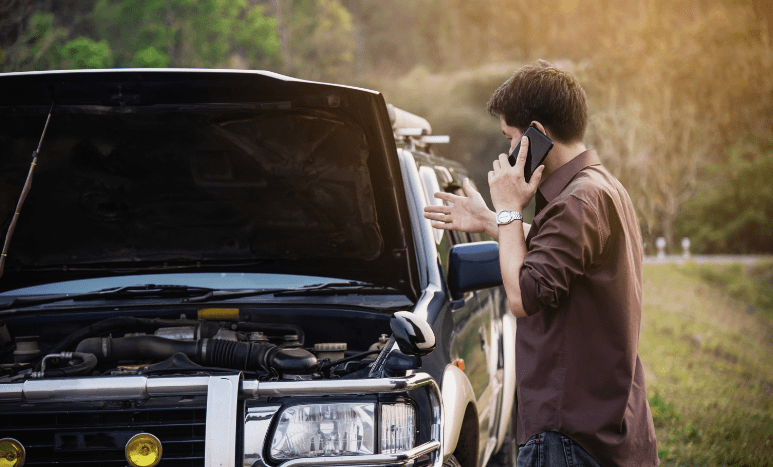Owning a car comes with a handful of givens. Not the least of these basic assumptions is that you should be able to handle the most common road emergencies that are part and parcel of racking up mileage day after day, whether for work/business, personal errands, vacation trips, etc.
Knowing exactly what you can do is vital for two major reasons: (1) to ensure your safety and (2) to ensure you don’t compromise your warranty (if you’re still covered) or your extended warranty or vehicle service contract (if your warranty has run out).
Here are 6 common road emergencies that you should be perfectly capable to handle:
1. Engine failure
Your car can lose engine power for a number of reasons. When this happens, these are the first things you should do: (1) turn on your hazard lights and (2) slowly start pumping your brakes to signal to other drivers that you’re having car trouble.
If you can, steer your car to the side of the road. Otherwise, stay in your lane and keep your lights on to alert other drivers while you call for roadside assistance.
2. Tire blowout
The noise of a blown tire can be pretty jarring—and scary if you get a tire blowout at night and you’re in an unfamiliar place.
When a vehicle has a blown tire, it will tend to steer to one side. To compensate, try to slow down while keeping a firm grip on your steering wheel as you guide your car to the side of the road. As soon as you have safely come to a full stop, assess the problem to see if a spare tire can get you back on the road in 30 minutes or less. Naturally, knowing how to change a tire is part of being able to handle a tire blowout.
If you don’t have a spare tire and/or still haven’t mastered the skill of changing a flat, call for roadside assistance.
3. Brake failure
Faulty brakes are particularly dangerous when you’re on a highway. If a system light alerts you to a brake failure, act at once and head for the nearest workshop—yes, even if you can’t seem to feel anything wrong with your brakes.
If your brakes have completely stopped functioning, warn other drivers with your horn or headlights and steer your car to the side of the road. If at all possible, don’t swerve.
4. Faulty headlights
This problem can be a major safety concern if you’re driving at night, on poorly lit roads, or in bad weather with poor visibility. Headlights can cease working either from a faulty connection or a weak battery.
As soon as you notice something out of whack with your headlights, slow down and safely get to the side of the road. Turn on your hazard lights (if they still work) or put out road hazard markers a safe distance behind your car. Call for roadside assistance, making sure you’re away from the road. If you’re having problems with your phone or you don’t have it with you for one reason or another, flag down another car and ask for assistance.
5. Cracked or shattered windscreen
Especially when you’re driving along poorly paved roads, other vehicles can throw up stones or debris that can end up cracking or shattering your windscreen. If this happens, don’t panic. Pull over to the side of the road safely; find a blanket or a big piece of cloth to cover up ventilator openings to prevent glass from falling in before slowly pushing your damaged windscreen out. Once removed, proceed to drive safely to the nearest workshop to get your windscreen fixed, and remember to wear glasses, or maybe a cap with a visor, to protect your eyes.
6. Jammed accelerator
This is not a very common issue; however, for your own safety and that of your fellow drivers, you should know what to do if you do indeed wind up with one.
Your first move should be to put your car in neutral, step on your brakes, and safely steer your car to the side of the road. Be sure to keep your engine running until you’re off the road. This keeps your steering from locking. Once you’re off the road, turn off the ignition to prevent engine damage. Call for assistance at once.
The ability to act safely and properly in case of a road emergency is one crucial factor in ensuring you have a positive car ownership experience. Just as important, when you do all the right things in response to a road emergency, you’re not likely to give the manufacturer any reason to void your warranty or risk your extended warranty or vehicle service contract coverage.
If your warranty is nearing expiration, it can’t hurt to get a head start in shopping for a vehicle service contract.
Explore your options with EverCare Protection. Chances are we have just the right vehicle service contract package that guarantees you a hassle-free car ownership experience after your warranty has run out.
Contact us today!

